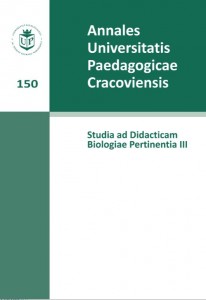Motivating secondary school students to raising the level of health literacy
Motivating secondary school students to raising the level of health literacy
Author(s): Alicja WalosikSubject(s): Sociology
Published by: Wydawnictwo Uniwersytetu Komisji Edukacji Narodowej w Krakowie
Keywords: “helth literacy”; curricula; students’ motivation
Summary/Abstract: Recent decades have brought many changes in the concepts and implementation of healtheducation. Contemporary health education of children and teenagers accounts for all aspectsof health (physical, psychic and social health) as well as for their conditioning factors. Oneof the main challenges of the twenty-first century public health is the promotion of 'healthliteracy'.The article presents changes that have been taking place in health education in Polish schoolsin recent years. It will also focus on the position and status of health education after thelatest curriculum reform (Ministry of National Education 2009). The new core curriculumsignificantly increases the status of health education making it an important objective for theschools and the teachers.The aim of the research conducted in year 2011/2012 was to investigate the level ofmotivation of secondary school students to learn aspects connected with health, as well asto measure their level of awareness and health literacy after a series of classes devoted topreventing the use of stimulants and psychoactive substances. The outcomes of documentsanalysis were researched by means qualitative approach, and the results of the appliedpedagogical experiment were analyzed statistically. Students’ motivation was measured bya survey, in accordance with the assumptions of Likert scale (Brzezinski, 2006).The initial motivation and final motivation after the experiment were measured among153 students from five grade 2 classes of the upper secondary school. After the experiment,a test research was applied to investigate the level of comprehension of issues connectedwith maintaining good health. The comparison of initial and final motivation of studentsparticipating in the research indicated that after the series of preventive classes their levelsof positive motivation, as well as moderately positive motivation, have risen.The research indicated that the main aim of health education classes should be the continuousmotivation of young people to undertake pro-health activities and avoid health risks. It isimportant to draw teenagers' attention to the interlinks between their behaviour (in particularactions which put health at risk) and the regularities resulting from their development, and tomake them aware about the necessity to lead a healthy lifestyle adjusted to their age.
Journal: Annales Universitatis Paedagogicae Cracoviensis. Studia ad Didacticam Biologiae Pertinentia
- Issue Year: III/2013
- Issue No: I
- Page Range: 71-91
- Page Count: 21
- Language: English

